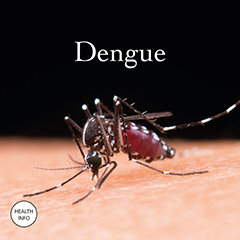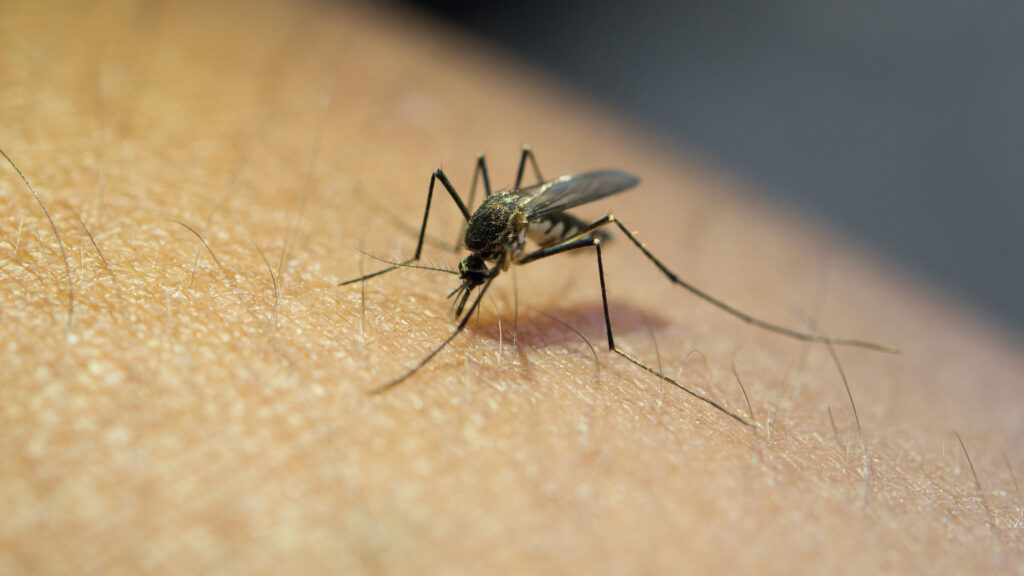
Aedes… Dengue… How do they relate?
Dengue is an infection caused by the dengue virus. How does one get infected by the dengue virus? This virus is passed on from humans to humans through the bites of a striped Aedes aegypti mosquito which has previously fed on the blood of an infected person. In summary, Aedes mosquitoes are transporters of the dengue virus.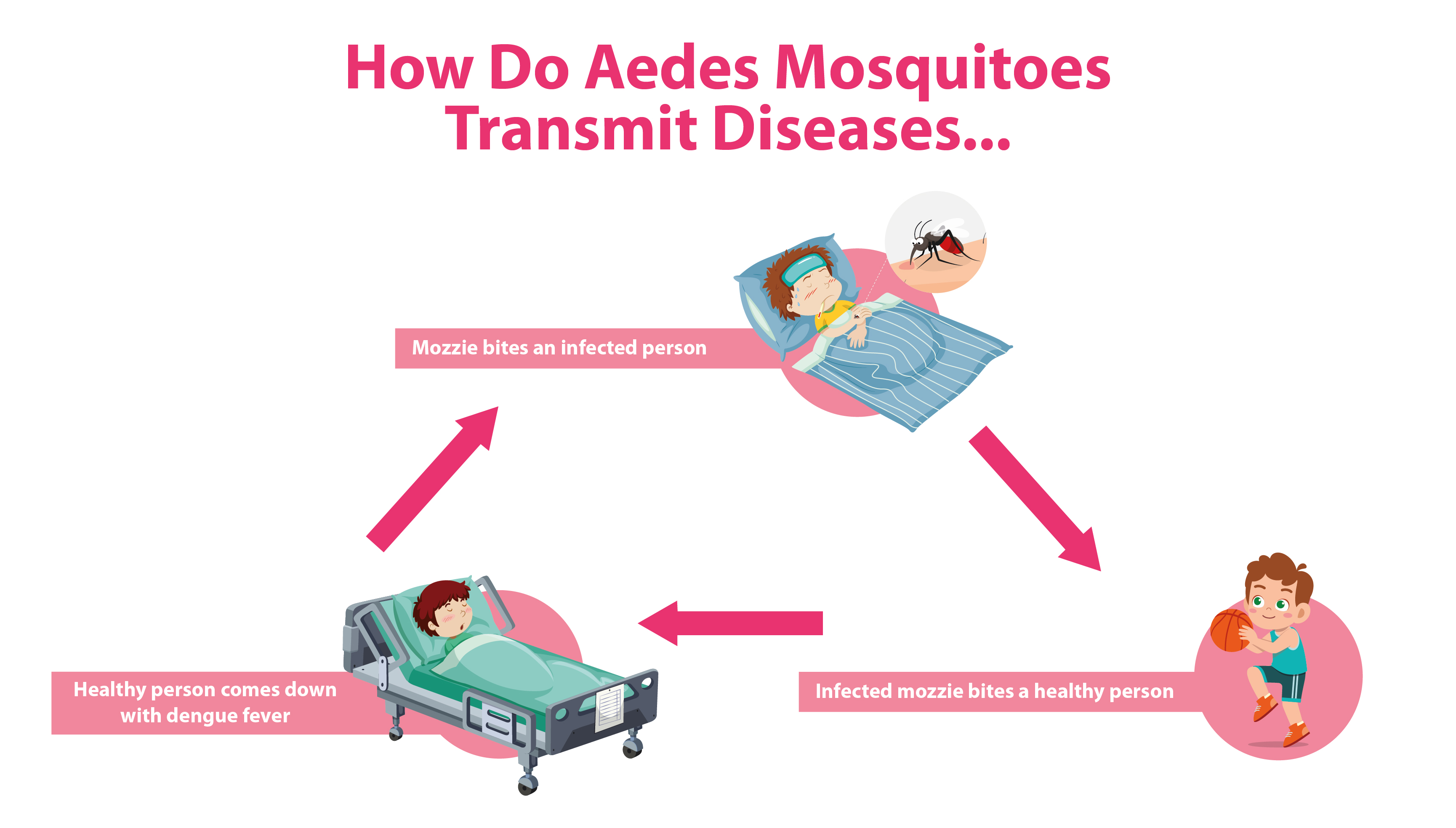
What to expect in a Dengue fever?
Symptoms of Dengue infection can be confusing and often mistaken as a normal flu. Not all who are down with Dengue will get sick but 1 in 4 people will experience some definite signs. Symptoms may vary from mild to severe and usually last for 2 to 7 days.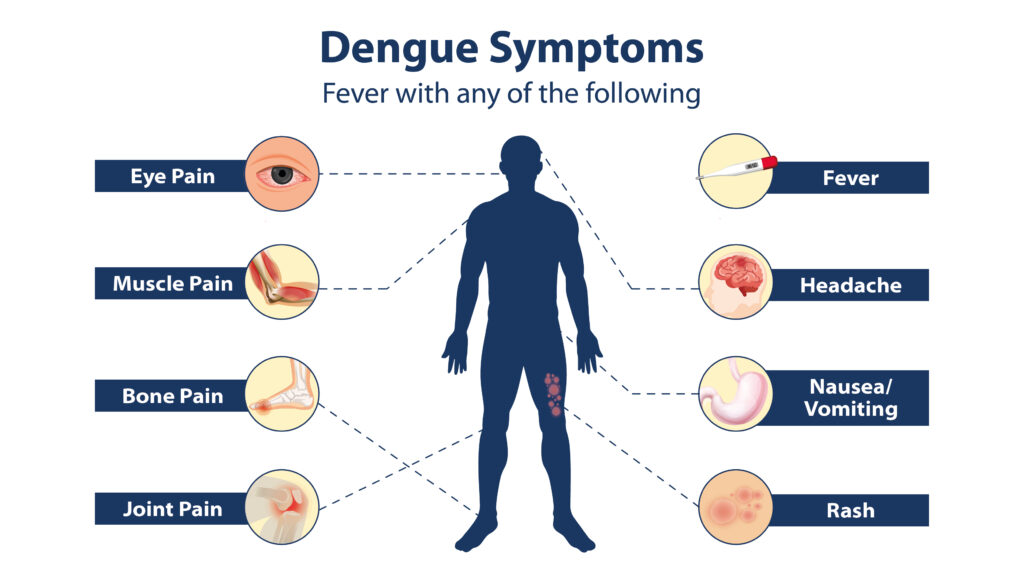 Symptoms of Mild Dengue
Symptoms of Mild Dengue
However, if your symptoms include any of the following, IMMEDIATE medical attention is needed, as this may be a sign of severe dengue:
- Belly pain
- Vomiting for at least 3 times in 24 hours
- Bleeding from mouth, gums or nose
- Vomiting blood or blood in the stool
- Feeling tired, restless
What to do if you have mild dengue?
Having mild signs of dengue but unsure what to do next? You may look for your nearest doctor or pharmacist and they will advise on how to manage these symptoms as there is no specific treatment for dengue fever till today. Therefore, to tackle this, you should:
- Rest! Rest is always the best for someone recovering from a sickness.
- Stay hydrated! Drink plenty of water and keep your electrolytes balanced.
- Take over-the-counter (OTC) painkillers such as Paracetamol, as they are easily accessible if you have pain, fever or muscle aches. Always ask your Pharmacist if you have doubts on which is suitable.
What can you do to prevent dengue?
Stay away and don’t let the evil mosquitoes get to you! But how? If you live in a neighborhood where mosquitoes are popular you can refer to this checklist:
- Regularly clean or remove any possible containers that may hold water as stagnant water is Aedes mosquitoes’ favourite place to lay eggs!
- Proper use of EPA-registered insect repellents to keep Aedes mosquitoes away.
- Cover as much as skin as possible by wearing full sleeves clothing & long pants
- Mosquito coils and mosquito nets are advisable to block off mosquitoes.
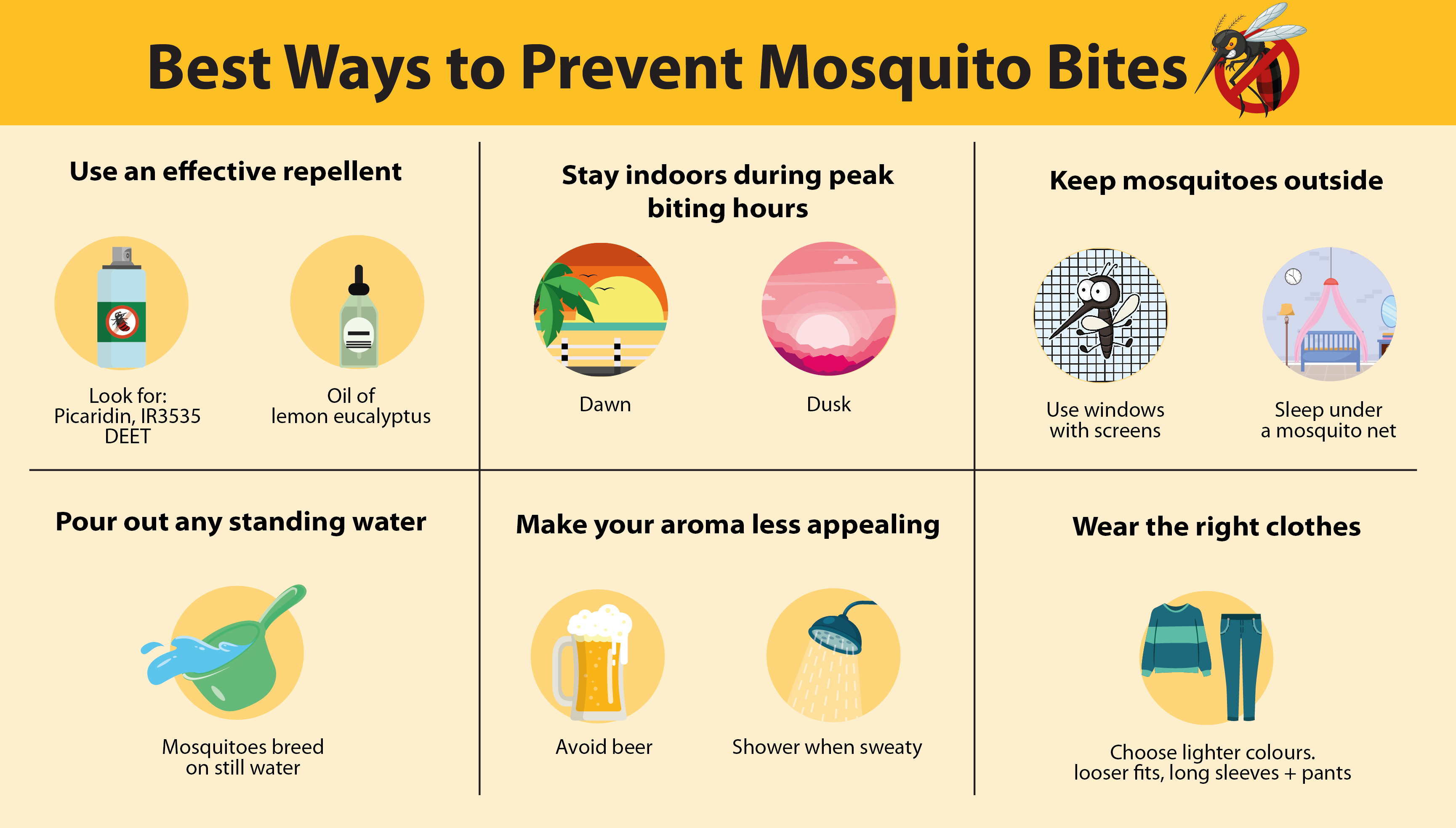
A little insight on whether mosquito repellents really work….
Dear readers, did you know that as the term suggests, mosquito repellent does not kill mosquitoes but instead it keeps these dangerous pests away from us. Although repellents can never guarantee us complete protection, it can significantly reduce our risk of getting dengue fever.
How do we know which repellent is a good one?
Mosquitoes rely largely on their senses of smell while looking for their ‘host’, in this case, an unlucky human. An effective mosquito repellent contains compounds that are tested and registered by the Environmental Protection Agency (EPA), to be able to interfere with the mosquitoes’ system and make them less attracted to us. Look for these EPA approved ingredients when choosing a good mosquito repellents:
- DEET
- Icaridin
- Citriodiol (derived from oil of LemonEucalyptus tree)
- IR3535
- 2-undecanone
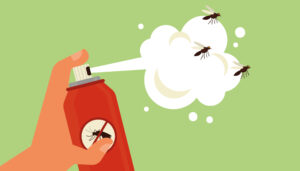
The popular question: Is DEET harmful to us?
According to many studies done on the safety and efficacy of DEET, DEET is still considered as the gold standard of mosquito repellents due to its long lasting effect compared to other ingredients. DEET may rarely cause skin irritation in some individuals but over the past 40 years, there were fewer than 50 cases of toxic effects reported and these cases were mostly outcomes of long-term usage of DEET. Considering its pros and cons, DEET is still necessary in crucial situations such as traveling to places with high populations of mosquitoes. DEET is tested to be effective against a variety of pests and can provide a long lasting protection for an average of 5 hours.
Plant-derived or commercially named as DEET-free mosquito repellents, are the most commonly used repellents as these are known to be safer and also useful in repelling mosquitoes. However, frequent reapplication is needed to maintain its efficacy as it may dry up more easily.
No insect repellents are perfect because they can be washed away by our sweats, rain or even the rising outdoor temperature. But together we can make a difference by choosing the right repellents to keep these nasty mosquitoes away. For further information, do not hesitate to approach our friendly pharmacists at any Caring Pharmacy outlets.

References:
- World Health Organization. 2022. Dengue and severe dengue. [Online] Available at: https://www.who.int/news-room/fact-sheets/detail/dengue-and-severe-dengue#:~:text=Dengue%20is%20a%20viral%20infection,called%20dengue%20virus%20(DENV). [Accessed on 16 May 2022]
- Centers for Disease Control and Prevention. 2022. Dengue: Symptoms and Treatment. [Online] Available at: https://www.cdc.gov/dengue/symptoms/index.html [Accessed on 16 May 2022]
- PubMed Central. 2015. The Efficacy of Some Commercially Available Insect Repellents for Aedes aegypti (Diptera: Culicidae) and Aedes albopictus (Diptera: Culicidae). [Online] Available at: https://www.ncbi.nlm.nih.gov/pmc/articles/PMC4667684/. [Accessed on 16 May 2022]
- Official Website Department of Occupational Safety and Health Ministry of Human Resources. 2022. Dengue. [Online] Available at: https://www.dosh.gov.my/index.php/osh-info-2/occupational-health/1547-dengue. [Accessed on 16 May 2022]
- ChemicalSafetyFacts.org. 2022. What You Want To Know About Insect Repellent and Chemical Safety. [Online]. Available at: https://www.chemicalsafetyfacts.org/what-you-want-to-know-about-insect-repellent-and-chemical-safety/. [Accessed on 16 May 2022]
- Medscape. 2019. Dengue. [Online] Available at: https://www.chemicalsafetyfacts.org/what-you-want-to-know-about-insect-repellent-and-chemical-safety/ [Accessed on 16 May 2022]
- Centers for Disease Control and Prevention. 2022. Dengue: Prevent Mosquito Bites. [Online] Available at: https://www.cdc.gov/dengue/prevention/prevent-mosquito-bites.html. [Accessed on 16 May 2022]
Tags
Latest Health Info
Brave the Cold: Winter Travel Needs
Winter travel has its kind of magic — snow-covered landscapes, cozy lodges, hot drinks, and festive markets. But traveling in ...
Beat the Heat When Travelling
Whether you’re on a scenic beach vacation or exploring a busy city, hot weather can quickly wear you out and ...
Got Pins & Needles? Learning about Diabetic Neuropathy
Diabetic neuropathy is a common yet serious complication of diabetes, estimated to affect up to 50% of people with the ...

